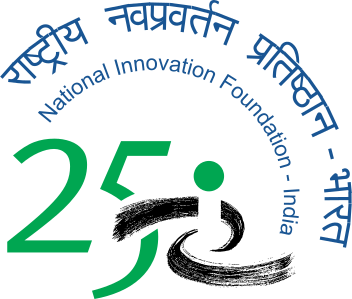News
The first India International Science Festival (IISF), expected to promote access and spread of knowledge to a wider audience, got off to a start at the Indian Institute of Technology (IIT), Delhi here yesterday.
IISF 2015 is aimed at involving and including common people to help them improve their scientific understanding, temperament and appreciation for various feats in science and technology by showcasing Indian achievements.
The event has been organized by the Ministries ofScience & Technology and Earth Sciences.
Technology Information, Forecasting & Assessment Council (TIFAC)is the nodal government institution for the event that has been organized in collaboration with Vijnana Bharati, an NGO that works for promotion of science and technology.
Among other things, the festival is expected to provide a platform to young scientists for exchange of knowledge and ideas and support flagship programmes like Make in India, Digital India, Start-ups, Smart Villages, Smart Cities, and so on initiated by the Government.
About 3000 young scientists from the country are participating in the event, which will feature, among other things, a Young Scientists' Conference, Techno-Industrial Expo, Science Film Festival, National Level Exhibition & Project Competition (NLEPC) showcasing innovative models under ‘INSPIRE’ Programme of DST, Industry-Academia Conclave, Practical Science Lab Demo and Interactive Workshops & Informative Sessions.
The Techno-Industrial Expo has attractd participation from major research organisations, industrial units, technological institutes, laboratories, educational institutions, public/private sector companies apart from government departments and councils.
In his inaugural address at the festival, Minister for Science and Technology Harsh Vardhan said the private sector should come forward to support unheralded innovators in rural areas who are coming up with solutions to solve everyday problems but do not have opportunities to promote and market them.
“We need an inclusive approach to entrepreneurship. There is a lot of potential in the informal sector thatthe private sector too can tap,” he said.
The National Innovation Foundation in Ahmedabad, for instance, has identified a number of grassroots level solutions that can be scaled up, some of which have been developed by innovators from tribal communities, he said.
Dr Vardhan said the value of scientific research to the country’s economy is estimated at between Rs. 1 lakh crore and Rs. 2 lakh crore every year. “An independent study by the National Council of Applied Economic Research has shown that weather forecasts by IMD alone have benefited the fisheries sector to the tune of Rs 34,000 crore annually,” he said.
Describing the festival as a landmark event, he said, “IISF is not just another routine programme for three to four days. It is the stepping stone for realising the dreams of great leaders from the first Prime Minister of the country, Jawaharlal Nehru to the current Prime Minister, Narendra Modi, to make India a top country in the world."
Secretary, Department of Science and Technology, Ashutosh Sharma, and Director General, Council for Scientific and Industrial Research, Girish Sahni, expressed the hope that the festival would go a long way in promoting Indian science and technology.
Vijnana Bharati President Vijay P Bhatkar and Sachin Mandavgane, Member Secretary, Scientific Programme Committee of the Festival, noted that a salient feature of the festival was that it had different elements from interactions between scientists and students to screening of award winning science films and documentaries to cater to people from different walks of life. A key goal of the festival was to take Indian science to the common man and build bridges between the lay public and the scientific community, they added.
Director of IIT, Delhi, Kshitij Gupta, welcomed the gathering and Executive Director of TIFAC, Prabhat Ranjan, proposed a vote of thanks.






